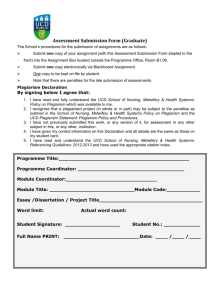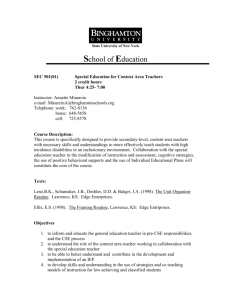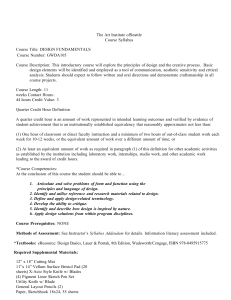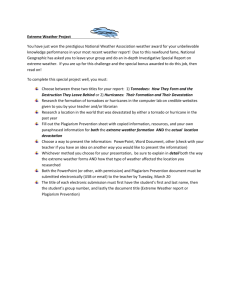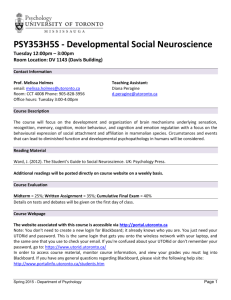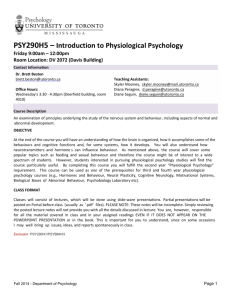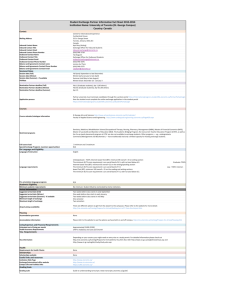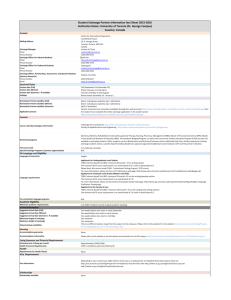PHL 384 ETHICS, GENETICS AND REPRODUCTION
advertisement
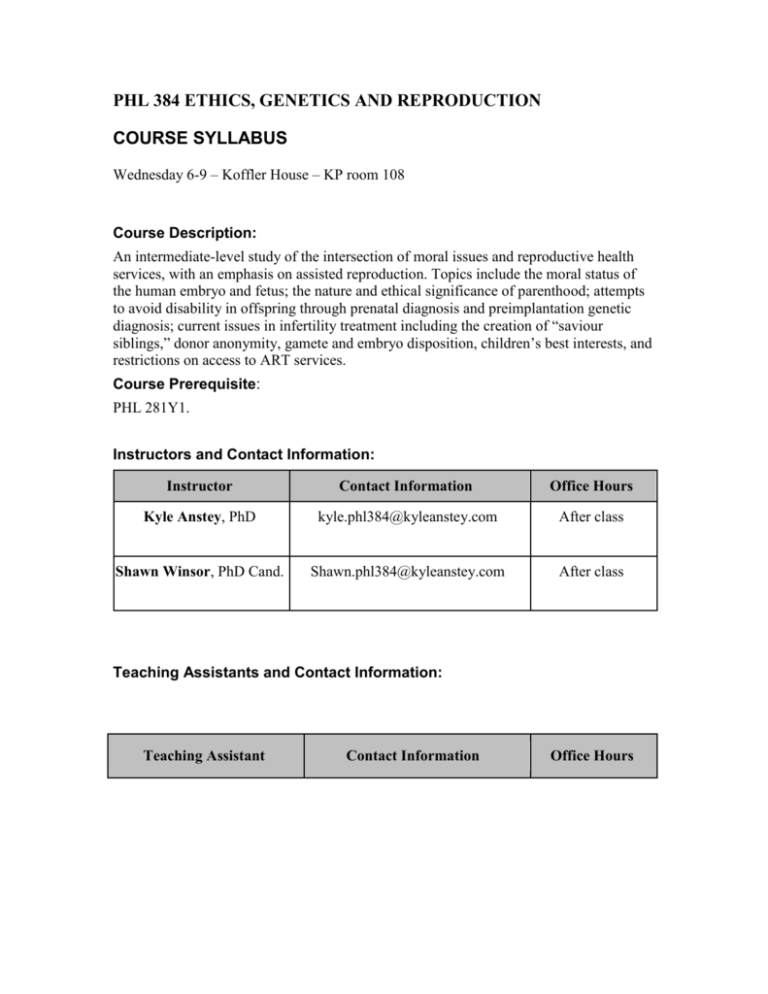
PHL 384 ETHICS, GENETICS AND REPRODUCTION COURSE SYLLABUS Wednesday 6-9 – Koffler House – KP room 108 Course Description: An intermediate-level study of the intersection of moral issues and reproductive health services, with an emphasis on assisted reproduction. Topics include the moral status of the human embryo and fetus; the nature and ethical significance of parenthood; attempts to avoid disability in offspring through prenatal diagnosis and preimplantation genetic diagnosis; current issues in infertility treatment including the creation of “saviour siblings,” donor anonymity, gamete and embryo disposition, children’s best interests, and restrictions on access to ART services. Course Prerequisite: PHL 281Y1. Instructors and Contact Information: Instructor Contact Information Office Hours Kyle Anstey, PhD kyle.phl384@kyleanstey.com After class Shawn Winsor, PhD Cand. Shawn.phl384@kyleanstey.com After class Teaching Assistants and Contact Information: Teaching Assistant Contact Information Office Hours Benjamin Wald, PhD Cand. Benjamin.wald@mail.utoronto.ca By arrangement with TA Communicating with your Instructors and Teaching Assistants Outside of lectures and office hours, communicate using only the email addresses above. Emails to our other work addresses will not be returned. We will guarantee a response to your email before the end of our next scheduled office hours. Important Term Dates: Type Due Date First Class Jan 8 Reading Week Feb 18-21 Deadline for withdrawing from this course Feb 17 Last Class April 2 Evaluation, Submission and Deadlines: Type and submission Essay 1. Submit BOTH electronically at: essay1.phl384@kyleanstey.com AND a hard copy at the beginning of class Percentage of Grade Due Date Work Returned By 50% Feb 12 March 5 Feb 15th. Essay 2. Submit BOTH electronically at: 50% essay2.phl384@kyleanstey.com March 19 April 2 AND a hard copy at the beginning of class March 21st. Format: Essays are MAXIMUM 1500 words and should be double spaced with 1 inch margins in a Times New Roman font. Electronic versions should be submitted in the .doc or .docx format used by Microsoft Word (as well as freely available software like Openoffice) Retention: Please retain a copy of all submitted work until your final grade in this course is received. Extensions on Evaluated Work Extensions on the above deadlines are not given without: - Prior notification of the impending lateness and any documentation necessary to support a legitimate reason for late submission that is beyond a student’s control, such as medical issues. - Documentation to support a legitimate reason for late submission that is beyond a student’s control AND an inability to give prior notification. If you have a legitimate, documented reason for late submission that is beyond your control we will evaluate your work without penalty. If you do not, and/or fail to provide the necessary notification and documentation, any submitted work will not be graded. Accommodations for Disability Students with diverse learning styles and needs are welcome in this course. In particular, if you have a disability/health consideration that may require accommodations, please feel free to approach us and/or Accessibility Services at (416) 978 8060; accessibility.utoronto.ca. Audio and visual recording devices may ONLY be used as accommodations for disability to promote open discussion of the difficult and sometimes personal issues that arise in a course of this nature. Any such use must first be discussed with the instructor. Requests to Re-Grade Assignments We will grade you fairly relative to your peers. If you feel that your grade is unfair, you can appeal the grade. Such a request entails a re-marking of the work. If a re-marking is granted, the student must accept the resulting mark as the new mark, whether it goes up or down or remains the same. Continuing with the re-mark or the appeal means the student accepts this condition. Students should make such requests as soon as reasonably possible after receiving the work back, but no later than one month after it was returned. If a TA originally marked the work, the re-marking request should go first to the TA and any appeal of that should go to the course instructor. Statement About Plagiarism: Plagiarism will not be tolerated. Ignorance is not a defense against plagiarism, especially in a 3rd year university course. Plagiarism includes, but is not limited to: - Duplicating someone else’s phrases or words without quotation marks and accurate footnotes or endnotes in a standard documentation format. If you need assistance with using Standard Documentation Formats: See http://www.writing.utoronto.ca/advice/using-sources/documentation - Duplicating someone else’s words or phrases or words with accurate footnotes, but without quotation marks. - Paraphrasing someone else’s ideas without accurate footnotes. Advice on how not to plagiarize is available at: http://www.writing.utoronto.ca/advice/using-sources/how-not-to-plagiarize If you still don’t understand what Plagiarism is, you are required to contact your instructors before writing your first assignment.
